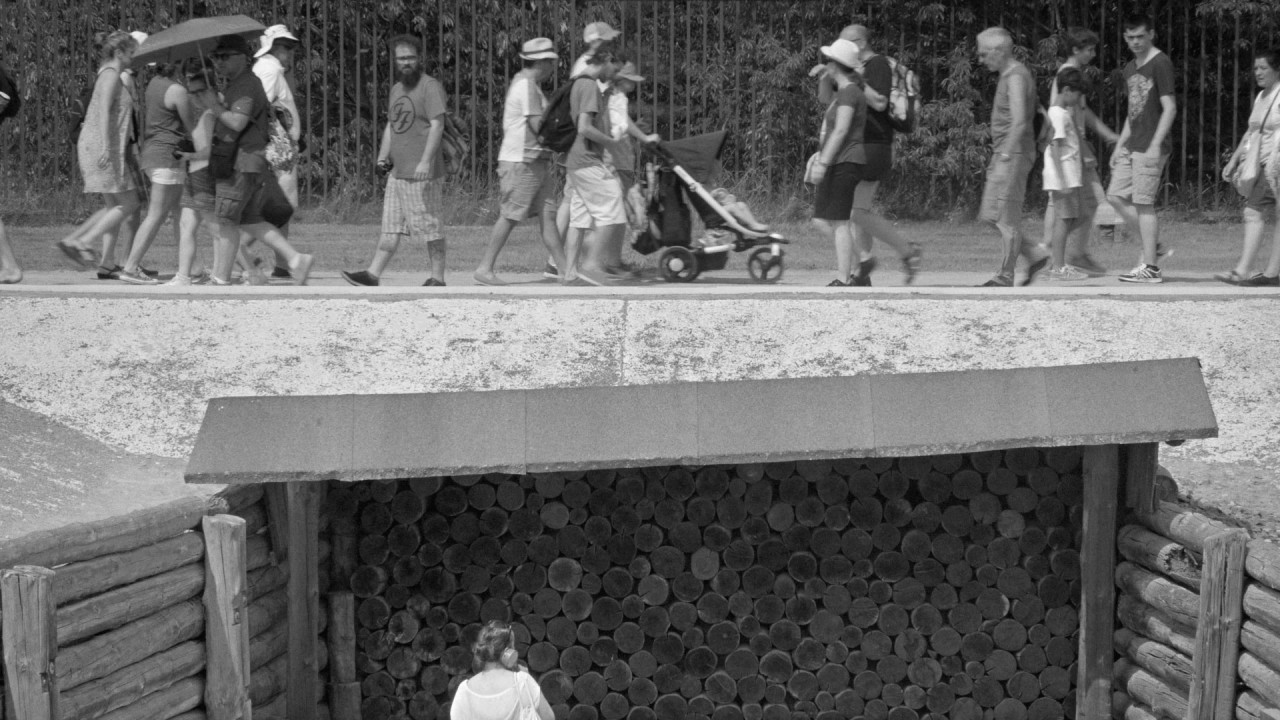The new film from Sergei Loznitsa (Maidan, The Event) is a stark yet rich and complex portrait of tourists visiting the grounds of former Nazi extermination camps, and a sometimes sardonic study of the relationship (or the clash) between contemporary culture and the sanctity of the site.

In a series of ashen black-and-white tableaux presented without commentary, Austerlitz depicts the crowds entering through a camp's massive steel gates (under the notorious "Arbeit macht frei" slogan), reading didactic panels as audio guides dangle from their necks, and listening with varying degrees of concentration to the multilingual presentations of tour guides. While the film's structure initially seems simple, each successive composition opens up new avenues of thought and reveals deeper layers of paradox. As t-shirted tourists snap and pose for pictures with selfie sticks (in this Insta-era, Loznitsa's is only one among countless cameras present), snack, and move freely within these spaces haunted by death, the temptation to indict is strong. But their presence in these former camps also indicates a profound desire to remember and understand the atrocities perpetrated there — a desire that is perhaps not extricable from voyeuristic fascination.
Contemplative and disconcerting, Loznitsa's film is not only a reflection on the mediatization and the spectacularization of the Holocaust, but on the insuperable gap between past and present — the tension between our attempts to learn from our history and the inability to truly recapture it. A provocative film of multiple readings, a meditation on both the banality and the depths of evil, the limits of memory and the very possibility of empathy in a consistently troubled world, Austerlitz ultimately asks what it is to be human in the face of horror.
ANDRÉA PICARD
Screenings
Scotiabank 5
Jackman Hall
Bell Lightbox 4
Scotiabank 5